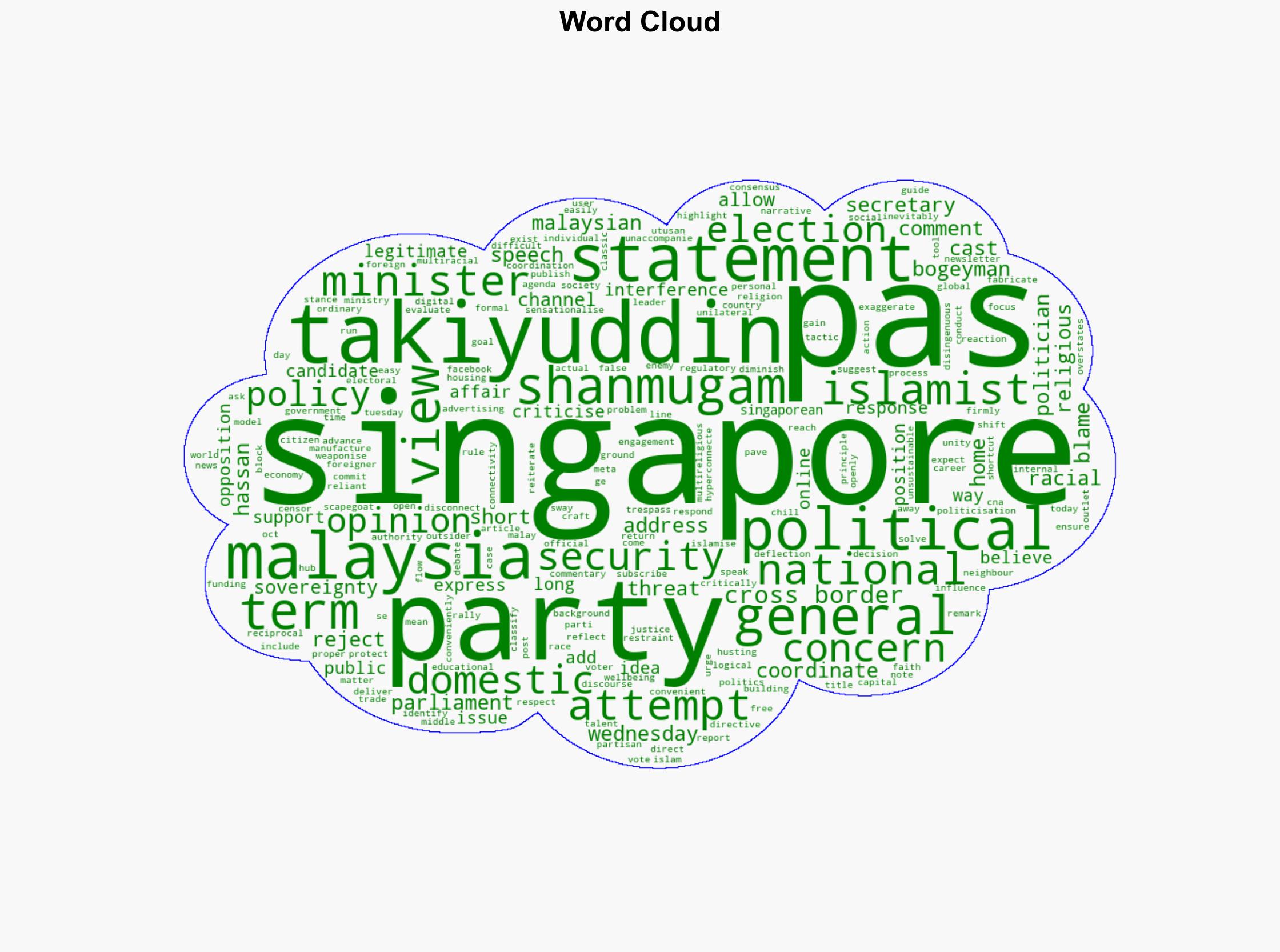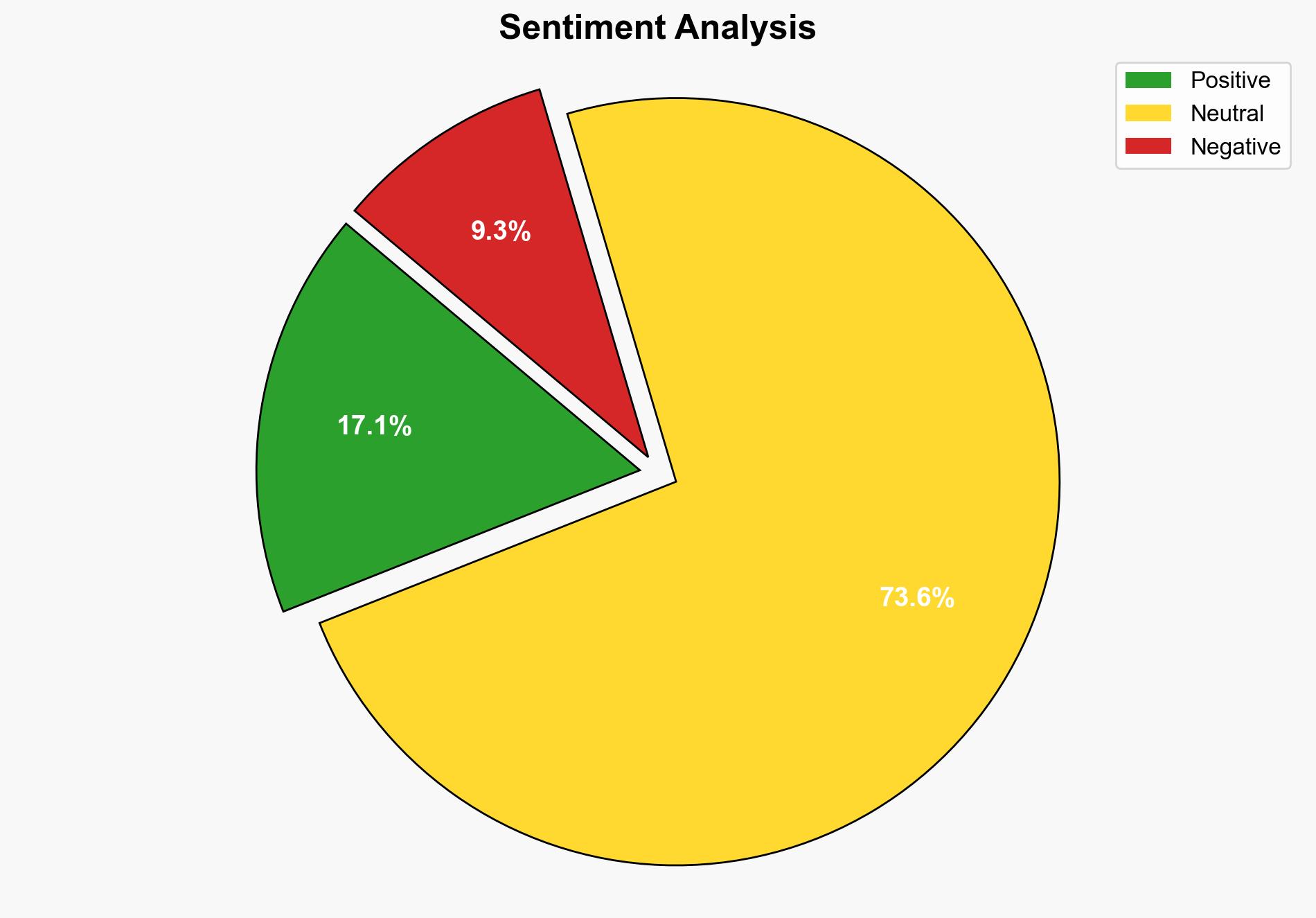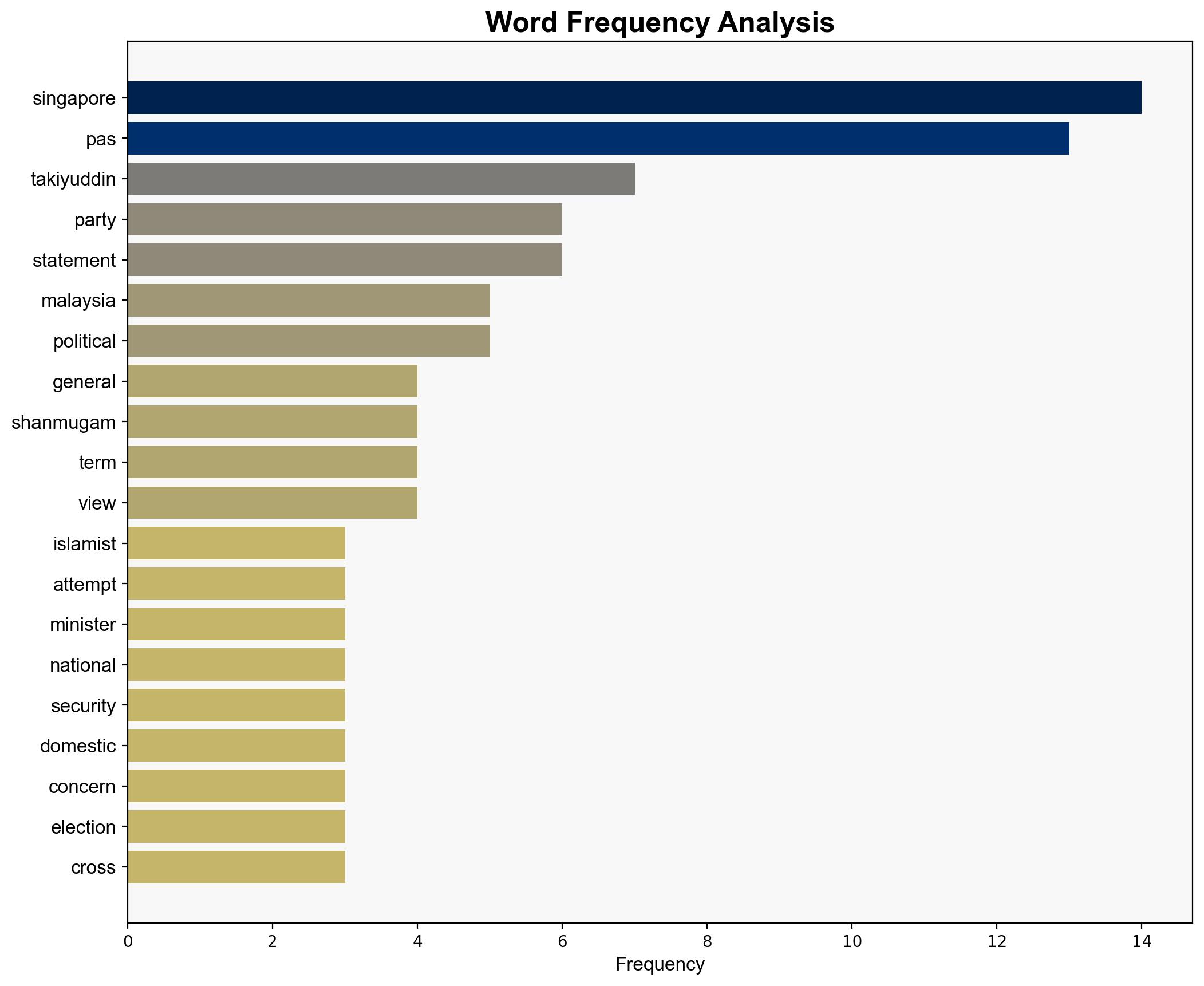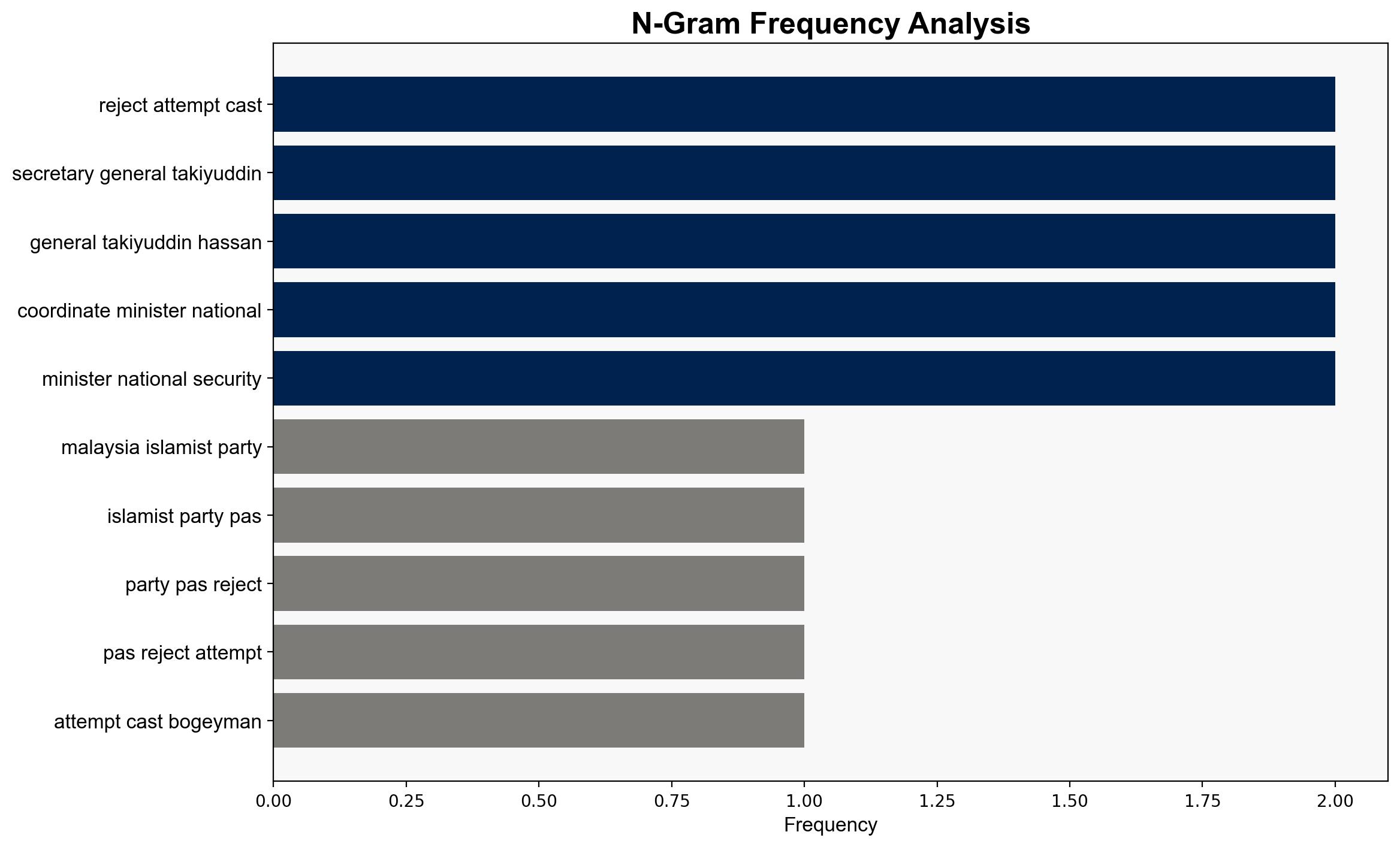Malaysia’s Islamist party PAS rejects ‘attempt’ to cast it as ‘bogeyman’ in Singapore politics – CNA
Published on: 2025-10-15
Intelligence Report: Malaysia’s Islamist party PAS rejects ‘attempt’ to cast it as ‘bogeyman’ in Singapore politics – CNA
1. BLUF (Bottom Line Up Front)
The most supported hypothesis is that PAS’s rejection of being portrayed as a “bogeyman” in Singaporean politics is a strategic move to maintain its political image and sovereignty while countering perceived external interference. Confidence level: Moderate. It is recommended to monitor PAS’s communications and Singapore’s political discourse for further developments, as well as to engage in diplomatic dialogue to address mutual concerns.
2. Competing Hypotheses
1. **PAS’s Rejection as a Strategic Defense**: PAS is actively rejecting the portrayal as a “bogeyman” to defend its political image and assert its sovereignty against perceived external interference from Singapore. This is supported by PAS’s emphasis on national sovereignty and the rejection of foreign influence in its political processes.
2. **PAS’s Rejection as a Tactical Diversion**: PAS’s rejection is a tactical move to divert attention from its own political strategies that may involve influencing Singaporean politics indirectly. This could be inferred from the emphasis on cross-border commentary and the potential for PAS to leverage digital platforms to influence public opinion.
3. Key Assumptions and Red Flags
– **Assumptions**: It is assumed that PAS’s statements are genuine and not a facade for deeper political maneuvers. It is also assumed that Singapore’s concerns are based on credible intelligence.
– **Red Flags**: The lack of concrete evidence of PAS’s direct interference in Singaporean politics raises questions about the validity of Singapore’s claims. Additionally, the potential for cognitive bias exists if either party is using this narrative to serve domestic political agendas.
4. Implications and Strategic Risks
– **Geopolitical Tensions**: Continued accusations could strain Malaysia-Singapore relations, impacting regional stability.
– **Digital Influence**: The use of digital platforms for political influence remains a concern, with potential cybersecurity implications.
– **Domestic Political Impact**: Both countries may use this narrative to rally domestic support, potentially leading to increased nationalism and xenophobia.
5. Recommendations and Outlook
- Engage in diplomatic dialogue to clarify misunderstandings and establish mutual agreements on non-interference.
- Monitor digital platforms for cross-border political influence activities.
- Scenario Projections:
- Best Case: Diplomatic resolution leads to strengthened bilateral relations.
- Worst Case: Escalation of tensions results in economic and political fallout.
- Most Likely: Continued rhetorical exchanges with limited tangible impact.
6. Key Individuals and Entities
– Takiyuddin Hassan
– Shanmugam
– PAS (Parti Islam Se-Malaysia)
7. Thematic Tags
national security threats, cybersecurity, counter-terrorism, regional focus





